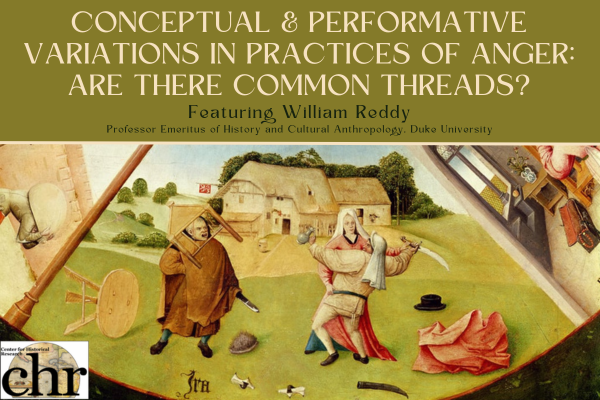
In 2020, Thomas Dixon in an essay entitled “What Is the History of Anger a History of?” argued that the modern English word, anger, is “without a stable transhistorical referent.”1 A range of historical and ethnographic examples will be presented, and the extent to which they support Dixon’s thesis will be examined. While subscribing to Dixon’s methodological caveats, I suspect there may be some discernible transhistorical patterns: (1) The meanings of anger and its local equivalents across time and space exhibit uniformities common to emotion terms in many languages. Emotion terms are usually vague or multivocal and suggest multiple possible courses of action. (2) The emotional states designated by anger terms, as with most emotion terms, are subjects of effortful attempts at “regulation,” or “management” aimed not at faking but at transforming a genuine, if ambivalent, emotional response into a preferred (and often unambivalent) one. (3) Expressions of anger generally imply claims to a status of honor or authority higher than that of the person or persons targeted by these expressions, and are often closely associated with local concepts of humiliation and vengeance.
About William Reddy
William Reddy is the William T. Laprade Distinguished Professor Emeritus of History at Duke University. Some of his recent books include: The Making of Romantic Love: Longing and Sexuality in Europe, South Asia and Japan, 900-1200 CE (University of Chicago Press, 2012), and The Navigation of Feeling: A Framework for the History of Emotions (Cambridge University Press, 2001). His current research investigates the relationship between reason and emotion in the seventeenth century.
Co-sponsor: Department of Anthropology
